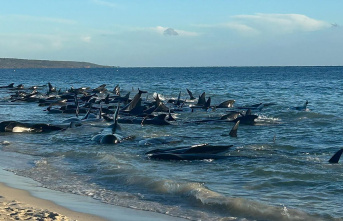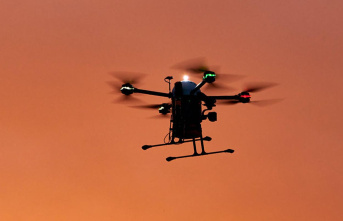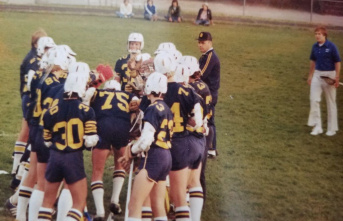OUAGADOUGOU (Burkina Faso) -- The mutinous soldiers that overthrew Burkina Faso’s democratically elected president in January promised they would do a better job of stopping the jihadi violence that is rocking the country. However, five months later, the attacks have increased and patience with junta seems to be waning.
Many Burkina Fasoans supported the January military coup, dissatisfied with the inability of the previous government to stop Islamic extremist violence that has claimed the lives of thousands and forced at least 2,000,000 people from their homes. Paul-Henri Sandaogo Damiba was the leader of the coup, and was later appointed interim president. He vowed to restore security.
Heni Nsaibia is senior researcher at ACLED.
Nearly 5,000 people died in Burkina Faso in the past two years. Experts warn that there will be severe consequences if violence continues to escalate.
"The decline of Burkina Faso is bound to fuel the growth of jihadist activity within the Gulf of Guinea States -- Benin. Ghana. Ivory Coast. and Togo -- where there is already jihadist recruitment, violence," stated Michael Shurkin (director of global programs, 14 North Strategies), a consulting firm based in Dakar.
Damiba asked citizens to support him until September in order to see improvements. He promoted young officers with field experience and established a central coordination unit to coordinate military operations. His government has also supported dialogues with jihadis in order to persuade them to drop their weapons and return home.
But violence is increasing. At least 30 security personnel have been killed since April, and two foreigners have been kidnapped and taken hostage: an American nun from the USA and a Polish citizen. According to the army, eleven Gendarmes were murdered by jihadis last week in Seno, Sahel.
As jihadis increase their use of roadside bombs, and more sophisticated weapons, the government is losing control over large swathes of land in particular the Sahel and Center North regions.
According to the government soldiers, they are short of equipment and have to steal ammunition and guns from the jihadis that they kill. The soldiers claim that seeing their colleagues die has also taken its toll.
"Our situation can be very difficult. "Sometimes the enemy kills me because we're constantly exhausted," said a soldier who spoke under anonymity because he was not authorized to talk to journalists.
Jihadis are shifting their strategy. According to a group representing aid organizations in the country, they are now targeting water sources and have destroyed 32 facilities so far this year, which has made it difficult for nearly 300,000.
"The conflict is now putting at danger the very thing nobody can live without: clean and safe water," stated Rebecca Bouchet-Petersen (country director of Solidarity International Burkina Faso).
The majority of the destruction to water sources has occurred around Djibo, in the desert Sahel region. This area hosts the largest number displaced people in the country. It has been under siege since months. According to government officials, Djibo's local leaders tried to negotiate with Jafar Dicko (the country's top jihadi), to end the blockade last month.
This was the first time that the government provided logistical support to local dialogues which have been ongoing for many years. Although the talks did partially allow for greater movement freedom in Djibo and elsewhere, it was still a minor improvement.
Boubacari Dicko, Emir of Djibo, said that "I believe it's when government negotiates that will see more significant results." He was the one who led the negotiations.
It is not clear if Damiba’s government will take this step. Although the previous government opposed such negotiations publicly, it did hold secret talks around November 2020's presidential election.
The crackdown by Damiba on civic freedoms is also causing discontent. The junta has rescinded the right to organize political demonstrations that could "disturb or mobilize security forces more useful for combat."
Locals in Burkina Faso's hardest-hit areas see no alternatives to the junta, and they are willing to wait a bit longer. Awa Komi, 45, tried to return to her village to work as her family was starving in August 2013. But she was stopped by jihadis who began killing her family.
She now lives in a temporary displacement camp in Ouahigouya, and hopes Damiba will restore her security so that she can return home.
The mother of eleven said it all, pumping her fist to emphasize the point. "He said things would improve in five months," she said. "If it isn't better within five months, we, his women, will kick him off."












